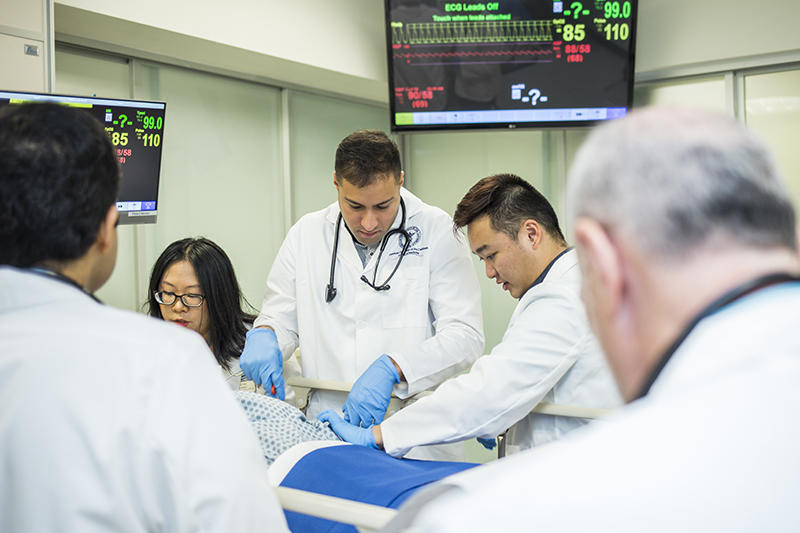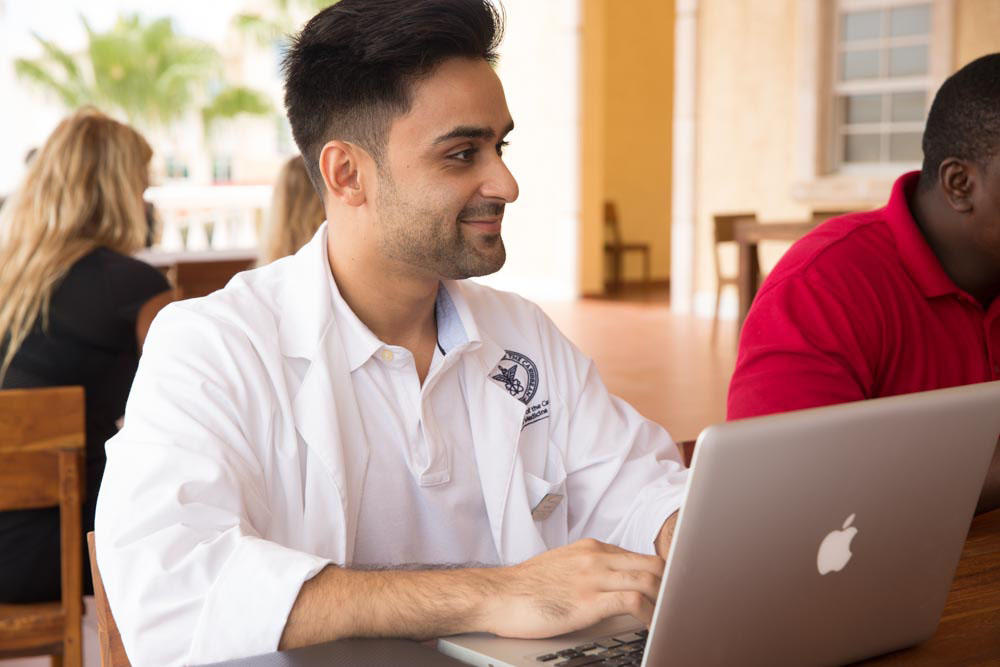You have always wanted to become a doctor. You love helping people, and you want to make a career out of treating people to improve their health and—ultimately—their lives. If you want to treat a variety of issues rather than specializing in a particular disease or part of the human body, you might consider becoming a general practice doctor, or a general practitioner. Before applying to an accredited medical school such as American University of the Caribbean School of Medicine, (AUC)*, consider the various disciplines within the general practitioner field, and think about how best to apply your skills and interests in the medical field.
What is a General Practitioner?
A general practitioner, or general practice doctor, is a versatile physician who does not specialize in one field of medicine. General practitioners are qualified to diagnose and treat a wide range of medical issues. They work in primary care as the first point of contact for patients, and they refer patients to specialists when needed. General practitioners have broad medical skills and knowledge so they can recognize a multitude of symptoms and then diagnose and treat numerous medical conditions. General practice doctors must also have excellent communication skills. They should be able to communicate well with their medical team to ensure that everyone involved understands the issues at hand and how they will be treated. General practitioners also need to be able to clearly and effectively share information with patients of all ages as well as their families.
Some general practitioners are in family medicine, which includes family doctors who treat everyone from infants to the elderly. They are called family medicine practitioners because they treat every member of the family, from young children to their parents and grandparents. They are typically the first doctor families bring their medical concerns to, which is why they are also primary care physicians. By seeing the same patients for many years, family medicine physicians may get good overall pictures of the long-term health of many individuals.
Other general practitioners focus on internal medicine and are referred to as internists. Internists are similar to family practitioners, but they only treat adults (people aged 18 and over) whereas family practitioners treat people of all ages. Also, many internists do not provide women’s health services. Occasionally, internists are also primary care physicians, as they can be the first doctor you see when you have a cold, cough, or other medical issue.
General practitioners also include such specialty areas as pediatrics (healthcare for infants, children, and adolescents) and geriatrics (which deals with senior and elderly patients and the conditions and ailments that occur with age). General practitioners in hospital medicine, known as hospitalists, work exclusively with inpatients in hospitals, and they are experts in the many treatments and facilities common to hospitals and hospitalized patients.
What are the Steps to Becoming a General Practitioner?
Now that you have an idea of what types of general practice disciplines there are, you may wonder what kind of general practitioner schooling is required. All these types of doctors have similar background training, but they have different certifications and specific qualifications.
All medical disciplines require an undergraduate degree with a strong concentration in the sciences (particularly biology and chemistry classes). Sometimes this undergraduate education is undertaken as part of a pre-med program. Prior to attending a medical school such as AUC, prospective doctors must be strong students and they must also do well on a standardized test called the Medical College Admissions Test® (MCAT®).
Medical students must earn their Doctor of Medicine (MD)—or Doctor of Osteopathy (DO)—degree and complete at least three years of medical residency before they can be licensed as general practitioners. Residency involves more intensive education and clinical practice under the supervision of other physicians. The different general practice disciplines require different focuses in coursework and residency, and most doctors also pass board exams specific to their field. Board exams evaluate medical knowledge, clinical understanding, and diagnostic ability. Each board is an independent organization that certifies physicians in a particular field. Consult the American Board of Physician Specialties for information about different board certifications in a number of different disciplines.
A family doctor, for example, will need a residency in family medicine with clinical rotations in a number of areas—including obstetrics, pediatrics, general surgery, emergency medicine, and hospital care—in order to prepare them to care for a variety of issues in a wide range of patients. They will need to pass a board examination offered by an organization such as the American Board of Family Medicine (ABFM).
Internists must complete a residency in internal medicine. These doctors train extensively in hospitals and clinics and are certified by the American Board of Internal Medicine (ABIM). Because internists do not treat children or deal with health issues particular to women, their residencies do not include rotations in pediatric or obstetric care.
Gerontologists may do their clinical residencies in internal or family medicine before applying to a geriatrics fellowship program. These programs involve additional clinical experience and may also include a focus on research. Organizations that certify gerontologists include the ABFM and ABIM. Pediatricians may do their residencies in children’s hospitals or pediatrics wards. The American Board of Pediatrics certifies pediatric general practitioners.
Now that you have an idea of what kinds of general practitioners there are, and what kinds of training are specific to different areas of study, consider which discipline best fits your interests. When you’re ready to start learning, apply to AUC and get started on the road to learning to become a general practitioner.
Related resources:
- Internal Medicine vs Family Medicine: What’s the Difference?
- How to Become a Family Physician
- What Is Internal Medicine?
*American University of the Caribbean School of Medicine is accredited by the Accreditation Commission on Colleges of Medicine (ACCM, www.accredmed.org), which is the accreditor used by the country of St. Maarten.





